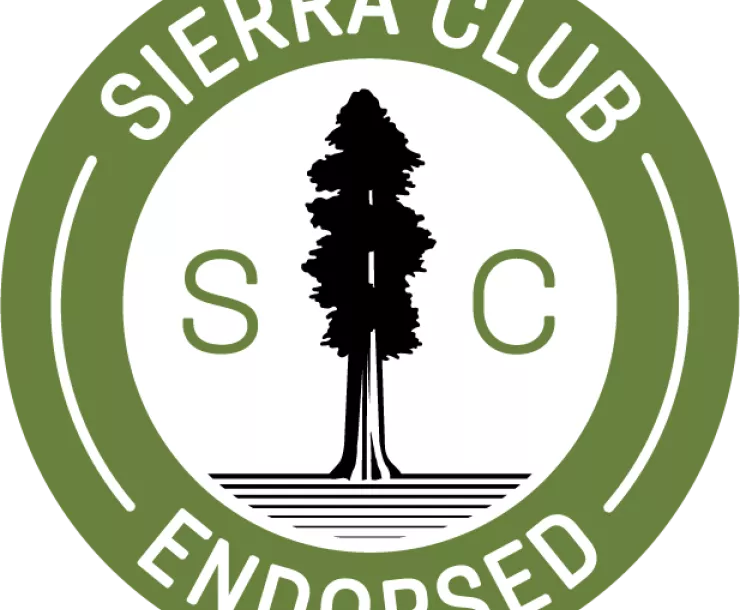During a zoom briefing February 2, aimed at helping state environmental groups understand the importance of the February 21 supreme court primary, Tony Wilkin Gibart of Midwest Environmental Advocates (MEA) gave a presentation on the impact of Wisconsin’s 7-member Supreme Court on both democracy and the environment in this state, which lags behind neighbors like Michigan and Minnesota because of the extremity of its gerrymandering and the weakness of its environmental protections and citizens’ rights in general.
“The over-riding issue that affects all aspects of policy” in Wisconsin is gerrymandering, Gibart said. Wisconsin has one of the worst gerrymanders in U.S. history, and that has only made our state more politically extreme in the years since Scott Walker declared Wisconsin “open for business,” and Republican majorities in both the assembly and the state senate became entrenched.
Sixty present of votes cast in Wisconsin are democratic votes, and yet, only 30% of seats in the legislature are held by pro-environment politicians.
“We are entering our second decade of no functioning legislative democracy,” Gibart said. “Highly organized special interest groups, because of gerrymandering, have way more influence than the will of the voter. This is about having a political system that is accountable to the majority of us.”
Gibart gave an interesting historical example. “Restoring nature to its natural state is a cause beyond party and beyond factions,” Richard Nixon, the founder of the Environmental Protection Agency, said in in his 1970 State of the Union speech. But Gibart pointed out that, while Nixon founded the EPA, he did so because of pressure from voters, not because he was concerned with environmental issues – at a time when our rivers caught fire and the air was so dirty it stank. By 1972, Congress had passed the Clean Water Act. The Clean Air Act was passed in 1977.
These laws have been vital to the health and welfare of millions of Americans. However, Gibart said, almost all environmental laws operate through state law, because it’s the states that have to implement them. And that, Gibart said, requires ongoing agency implementation through rule-making and permitting.
And it requires enforcement. In Wisconsin, two powerful legislative committees have been hard at work making our legislature unaccountable to federal law: the Joint Committee for Review of Legislative Rules (JCRAR) and the Joint Committee on Finance. “These legislative committees are not accountable to us” and have been instrumental in legislative interference with environmental law. In fact, as in the case of the Joint Committee on Finance, they often act anonymously and are accountable to no one but the business interests they serve.
“Our state supreme court will play a critical role in the future of environmental regulation and enforcement in this state,” Gibart said. “It will be nearly impossible for environmental regulation to work if these kinds of power grabs are allowed. The consequences of this election go beyond any one case or anyone issue.” The question, he said, is “can our state government worked using environmental law as intended?”
Gibart discussed three prominent cases that serve as an example of everything that hangs in the balance in this state.
Wisconsin Manufacturers & Commerce(WMC) vs. DNR.
“Will the state’s most powerful lobbying group get the court to go along with gutting the state’s 40-year old spills law?” Gibart asked. “A victory for WMC would radically alter the state’s ability to hold polluters accountable.”
Kaul vs. Wisconsin State Legislature
At issue, the legislative power grab in 2018 when Toney Evers took office as governor. Would a legislative committee (JCRAR) be able to over-ride the will of the voters when it came to letting AG Kaul and Toney Evers do their jobs? In 2021, the supreme court announced its decision not to hear DOJ’s lawsuit.
Friends of the Black River Forest vs. DNR
In which the supreme court, in a 4-3 vote, chose to deny the citizen’s group standing to sue the DNR to prevent a land swap that granted Kohler Company land inside Kohler-Andrae State Park to build a road to its proposed habitat-destroying golf course.
“If the logic of this decision is extended,” Gibart said, it means that “if you’re a polluter, the door (to our state supreme court) is wide open, but if you are a citizen’s group, the door will be shut to you. What happens in February and April will have a decisive impact.”
Voter Guide — Wisconsin Conservation Voices




